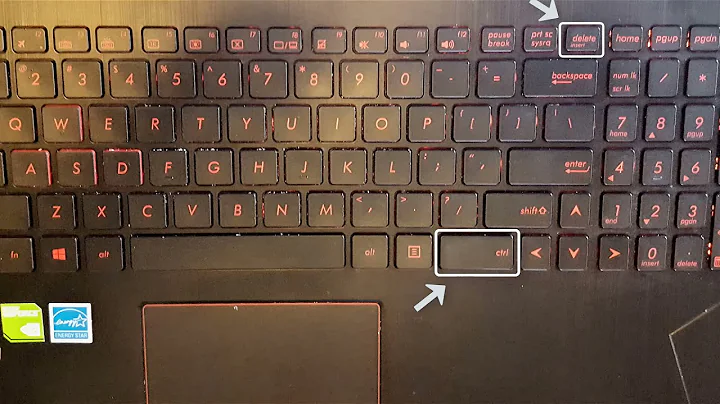Why don't you have to press CTRL+ALT+DEL to logon anymore in Windows 8?
Solution 1
I do not believe this was enforced by default in earlier windows versions either. There is a group policy setting you can use to enforce this.
Computer Configuration - Windows Settings - Security Settings - Local Policies - Security Options - Interactive Logon: Do not require CTRL+ALT+DELETE
disable that and you will be required to press ctrl+alt+delete.
same procedure for a domain gpo or standalone. I still turn this on in my home as a default security practice for the reasons you mentioned above.
Solution 2
Twisty's comment is correct, the accepted answer is not.
You can test if you like. Create a fresh AD domain and two fresh installs of Windows, one Windows 8 or newer and one Windows 7 or older. Before domain join, neither OS will require CAD/SAK/SAS. After domain join, Windows 7 will require it and Windows 8 will not. It is not due to group policy, if you do happen to explicitly apply this setting via GPO as described in the accepted answer, then you will see that all Windows versions will require CAD/SAK/SAS.
MCSA in 2012 R2
Related videos on Youtube
Mike Christensen
Updated on September 18, 2022Comments
-
Mike Christensen over 1 year
In previous versions of Windows, you had to press Ctrl + Alt + Delete to logon, or to unlock a locked workstation. This was because this key sequence was recognized only by the OS and thus other software couldn't intercept it and display a spoofed logon screen to capture passwords.
Starting with Windows 8, you now just have to press Enter to get to the logon screen.
What is to stop someone from writing a fake logon screen? Did Windows 8 add some sort of new security mechanism to mitigate this security issue?
-
Ramhound about 10 yearsIt was always handled by a domain policy. You can configure Windows XP through Windows 8.1 to require authentication or automatically log into a specific user if you want.
-
Mike Christensen about 10 years@Ramhound - I'm looking for this setting (In Windows 8.1) but cannot find it anywhere.. Are you sure?
-
-
Mike Christensen about 10 yearsFound it! You have to run
netplwiz, then go to the Advanced tab and check the Enable Secure Logon checkbox. -
 driz about 10 yearsis the end result between using netplwiz and the GPO different? Presumably they are the same; but I don't think you can enforce a setting in netplwiz across a domain. glad you found it!
driz about 10 yearsis the end result between using netplwiz and the GPO different? Presumably they are the same; but I don't think you can enforce a setting in netplwiz across a domain. glad you found it! -
Mike Christensen about 10 yearsI couldn't find anything called
Computer Configurationon my machine, so I didn't try your way. -
 driz about 10 yearsah, it's under the local group policy editor; gpedit.msc; for a domain, it is gpmc. I apologize for the lacking response!
driz about 10 yearsah, it's under the local group policy editor; gpedit.msc; for a domain, it is gpmc. I apologize for the lacking response! -
Mike Christensen about 10 yearsAh no problem. I got it figured out anyway.
-
chwi almost 10 years@MikeChristensen whats up with that? You got it figured out? Please dont accept an answer because you found your own way of doing it, or add information in the comment that tells us something about what the solution was.
-
 I say Reinstate Monica almost 9 yearsI do not believe this was enforced by default in earlier windows versions.... Correct for non-domain joined computers and all Home editions of Windows. The default configuration of domain-joined computers in prior versions was to require the CAD sequence.
I say Reinstate Monica almost 9 yearsI do not believe this was enforced by default in earlier windows versions.... Correct for non-domain joined computers and all Home editions of Windows. The default configuration of domain-joined computers in prior versions was to require the CAD sequence. -
Syberdoor about 6 yearsYou are right, however this is not really an answer to the question why this was changed. Do you happen to know? I am guessing it has something to do with more keyboardless tablets and more biometric methods via hello that they found it to be inconvenient but I have not found any source so far.
-
 escuelle about 6 yearsProbably because it was regarded as a simply security feature that was more complex than it needed to be. cnn.com/2013/09/26/tech/innovation/…
escuelle about 6 yearsProbably because it was regarded as a simply security feature that was more complex than it needed to be. cnn.com/2013/09/26/tech/innovation/…




